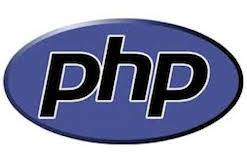
In this tutorial, we will show you how to install PHP 7.4 on AlmaLinux 8. For those of you who didn’t know, PHP is a popular general-purpose scripting language that is especially suited to web development. It is the core of most blogging systems such as WordPress, Drupal, Magento, and many more.
This article assumes you have at least basic knowledge of Linux, know how to use the shell, and most importantly, you host your site on your own VPS. The installation is quite simple and assumes you are running in the root account, if not you may need to add ‘sudo‘ to the commands to get root privileges. I will show you the step-by-step installation of PHP 7.4 on an AlmaLinux 8. You can follow the same instructions for Rocky Linux.
Prerequisites
- A server running one of the following operating systems: AlamLinux 8 or Rocky Linux 8.
- It’s recommended that you use a fresh OS install to prevent any potential issues.
- SSH access to the server (or just open Terminal if you’re on a desktop).
- A
non-root sudo useror access to theroot user. We recommend acting as anon-root sudo user, however, as you can harm your system if you’re not careful when acting as the root.
Install PHP 7.4 on AlmaLinux 8
Step 1. First, let’s start by ensuring your system is up-to-date.
sudo dnf update
Step 2. Enable EPEL and Remi repository.
Added EPEL and Remi repository on AlmaLinux system:
rpm -Uvh https://dl.fedoraproject.org/pub/epel/epel-release-latest-8.noarch.rpm dnf install -y https://rpms.remirepo.net/enterprise/remi-release-8.rpm
Step 3. Installing PHP 7.4 on AlmaLinux 8.
Now we install PHP 7.4 via the Remi repository using the following command below:
sudo dnf module reset php sudo dnf module install php:remi-7.4
Output:
[root@idroot.us ~]# sudo dnf module install php:remi-7.4 Last metadata expiration check: 0:08:33 ago on Wed 20 May 2021 00:01:46 PM EST. Dependencies resolved. ===================================================================================================== Package Architecture Version Repository Size ===================================================================================================== Upgrading: php x86_64 7.4.15-1.el8.remi remi-modular 3.0 M php-cli x86_64 7.4.15-1.el8.remi remi-modular 4.6 M php-common x86_64 7.4.15-1.el8.remi remi-modular 1.2 M php-fpm x86_64 7.4.15-1.el8.remi remi-modular 1.6 M php-gd x86_64 7.4.15-1.el8.remi remi-modular 93 k php-json x86_64 7.4.15-1.el8.remi remi-modular 76 k
For the Nginx web server, you need to install php-fpm, execute the following command to install PHP 7.4 FPM:
sudo apt install php-fpm
Once successfully installed, we can verify the version installed by running the php -v command:
php -v
Output:
[root@idroot.us ~]# php -v
PHP 7.4.18 (cli) (built: May 20 2021 00:09:10) ( NTS )
Copyright (c) The PHP Group
Zend Engine v3.4.0, Copyright (c) Zend Technologies
with Zend OPcache v7.4.15, Copyright (c), by Zend Technologies
Congratulations! You have successfully installed PHP 7. Thanks for using this tutorial for installing PHP 7.4 on your AlmaLinux 8 system. For additional help or useful information, we recommend you check the official PHP website.